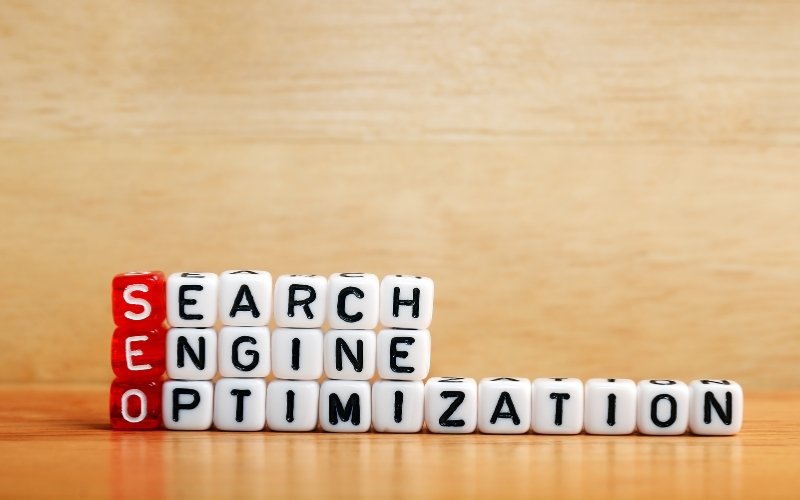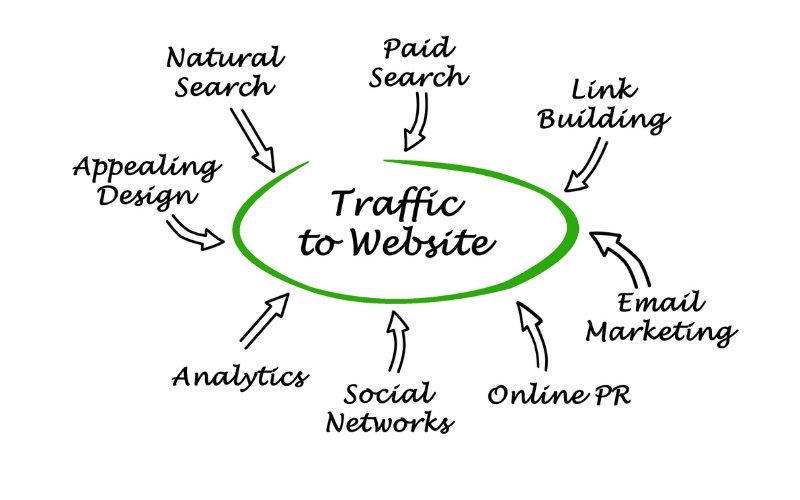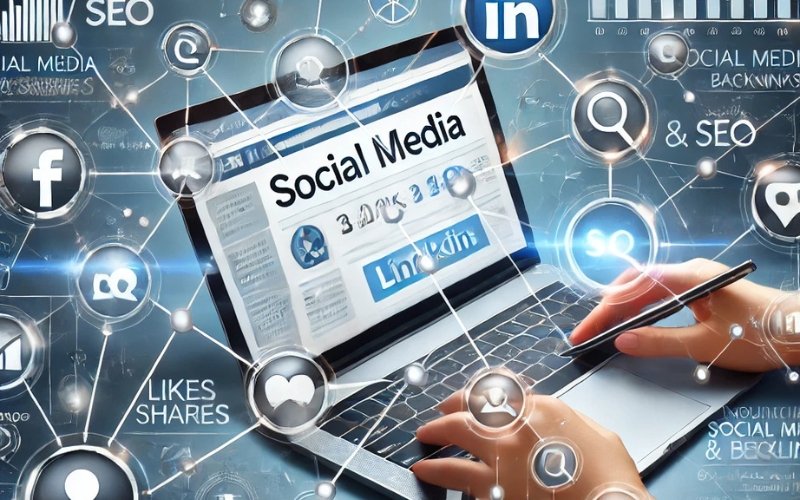One of the more persistent myths in the world of digital marketing is that social media has no direct impact on SEO. Many business owners believe that their social media activity does not influence their website’s ranking in search engines. While it’s true that social media signals, such as likes, shares, and comments, do not directly affect rankings, the idea that social media has no impact on SEO is far from accurate. In reality, social media plays a significant indirect role in boosting SEO performance and increasing visibility.
Increased Content Visibility and Engagement

Social media is an invaluable platform for promoting content and amplifying its visibility. While many argue that social media has no impact on SEO, its indirect benefits play a vital role in enhancing your website’s performance. By strategically sharing your content across social platforms, you increase its chances of being discovered and engaged with by a broader audience. This visibility often translates into actionable results that influence search engine rankings.
When your content garners likes, shares, and comments on platforms like Facebook, Twitter, or LinkedIn, it gains exposure to more users, including influencers, bloggers, and journalists. These individuals may find your content valuable and link to it from their websites. Backlinks are a crucial ranking factor for search engines, and acquiring quality backlinks from authoritative sites can significantly boost your site’s authority and rankings.
For instance, imagine you share a blog post on LinkedIn discussing industry trends. If it resonates with your audience and goes viral, industry leaders might reference your content in their articles or blogs, creating valuable backlinks to your site. Although social media has no impact on SEO directly in terms of search engine algorithms, this ripple effect of visibility and engagement often leads to outcomes that positively influence your rankings.
The Role of Backlinks in SEO
Backlinks are a cornerstone of SEO strategy, and social media can be a catalyst for generating them. A well-crafted, shareable post on platforms like Instagram or Twitter can attract significant attention, increasing the likelihood of others referencing your content. While it’s true that social media has no impact on SEO from a direct ranking perspective, the indirect effect of gaining high-quality backlinks from social visibility cannot be ignored.
Consider a scenario where a tweet highlighting a recent study goes viral. Bloggers and content creators within your niche might use the study as a reference in their own work, linking back to your website. These organic backlinks strengthen your domain authority and improve your site’s credibility in the eyes of search engines. Hence, while social media has no impact on SEO directly, it indirectly supports your SEO goals by enabling these valuable connections.
Amplifying Organic Search Potential
Another way social media contributes to SEO success is through content amplification. The more people who see your content, the greater the chances of them searching for your brand or website directly, which contributes to organic traffic. This increased search volume signals relevance to search engines, even if social media has no impact on SEO algorithmically.
By consistently promoting high-quality content across social platforms, you can drive significant user engagement, build backlinks, and ultimately strengthen your overall SEO efforts. Social media may not be a direct ranking factor, but its ability to expand your reach and influence makes it a powerful ally in optimizing your website’s performance
Social Media Profiles Rank in Search Engines

One of the ways social media contributes to your online strategy is through the ranking of social media profiles in search engines. While some argue that social media has no impact on SEO, the visibility of social media pages in search results proves otherwise. When users search for your brand or business, your social media profiles often appear prominently alongside your website. This not only increases your digital footprint but also offers multiple channels for users to interact with your brand.
Social Profiles as Credibility Boosters
When a user searches for your business name, the search results often include links to platforms like Facebook, Instagram, LinkedIn, and Twitter, along with your official website. These profiles serve as additional touchpoints, reinforcing your brand’s legitimacy. A well-maintained social media presence shows that your business is active, accessible, and engaged with its audience. For many users, the availability of updated social media profiles in search results is a sign of credibility. Contrary to the belief that social media has no impact on SEO, this visibility strengthens your brand’s online reputation.
Additionally, these profiles often rank higher because search engines prioritize high-authority domains like Facebook or LinkedIn. This is especially beneficial for smaller businesses or startups that may not yet have a strong domain authority for their website. By leveraging social platforms, you can still appear prominently in search results, offering users more ways to discover and engage with your brand.
Increased Engagement Opportunities
Having social media profiles appear in search results provides users with options for how they want to connect with your business. Some might prefer visiting your website, while others may feel more comfortable engaging through social channels. This flexibility enhances the user experience and increases the likelihood of interaction. Even if some believe that social media has no impact on SEO, the indirect benefits of social media visibility cannot be denied. Improved engagement metrics, like clicks and time spent on your profiles, signal to search engines that your brand is relevant and valuable.
Social Media Profiles Drive Traffic
Social media profiles don’t just occupy space in search results; they also act as traffic drivers. When users click on your profiles, they may find links to your website, blog, or product pages, ultimately increasing referral traffic. While critics may argue that social media has no impact on SEO, the traffic generated from these profiles can improve your site’s overall performance metrics, such as session duration and bounce rate. These improvements indirectly influence your search rankings, demonstrating that social media plays a subtle yet important role in SEO.
Driving Traffic to Your Website

One of the most debated points is whether social media has no impact on SEO, yet its ability to drive traffic to your website proves otherwise. When you share blog posts, videos, or other content on social platforms, you can generate a significant amount of referral traffic. More traffic to your website can lead to increased engagement metrics like time spent on the site, page views per session, and reduced bounce rates—all factors that search engines consider when ranking websites.
For example, if you share a new blog post on LinkedIn and it receives hundreds of clicks, those users are visiting your site, reading your content, and potentially exploring other pages. Despite the claim that social media has no impact on SEO, this activity signals to search engines that your site is engaging and valuable to users, which can lead to improved rankings over time. Consistently driving traffic from social media to your website also helps to establish a steady flow of visitors, countering the misconception that social media has no impact on SEO and showcasing its role in supporting long-term SEO success.
Amplifying Content Distribution
One of the biggest challenges in SEO is ensuring that your content reaches a broad audience. Even the most well-optimized content won’t perform well in search engines if it doesn’t gain any traction or visibility. While some argue that social media has no impact on SEO, it undeniably acts as an amplification tool, allowing you to distribute your content to a larger audience and giving it the chance to gain attention from people who might not have found it otherwise.
When more people see your content and engage with it, the chances of earning backlinks and gaining mentions on other websites increase. Despite claims that social media has no impact on SEO, this indirect effect of social media activity can lead to improved SEO performance. Additionally, social media provides opportunities to build relationships with influencers and thought leaders in your industry, further increasing the likelihood of earning valuable backlinks.
Conclusion
While social media may not have a direct impact on search engine rankings, its role in increasing content visibility, driving traffic, and generating backlinks is undeniable. Integrating social media into your SEO strategy can help you boost your website’s performance and improve your search rankings in the long run. Far from being irrelevant to SEO, social media is an essential tool for amplifying your content, engaging with your audience, and driving meaningful traffic to your site.

